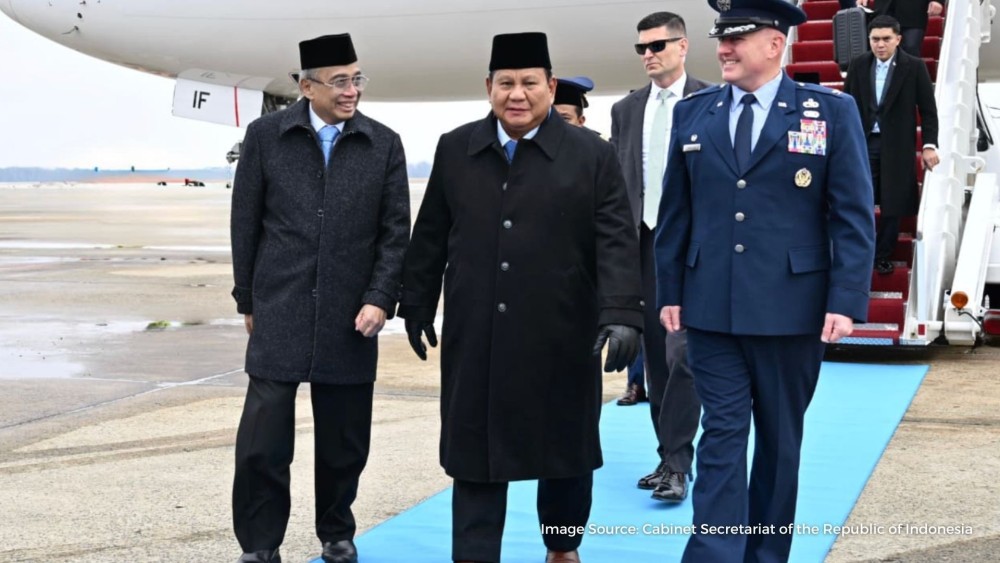Indonesia’s automotive industry still recovering, remains resilient
14 Jun 2024

Indonesia's automotive industry, a crucial pillar of the nation's economy, is still recovering amidst various economic and political challenges. While the sector has faced hurdles in the past year, signs of resilience and potential are evident, driven by dynamics in both new and used vehicle markets and the entry of new industry players.
Current Market Conditions and Challenges
Domestic car sales in 2023 reached 1 million units, marking a 4% year-on-year decline from the 1.05 million units sold in 2022, according to data from the Indonesian Automotive Manufacturers Association (Gaikindo). This downturn was attributed to weaker economic growth and high interest rates. Gaikindo cochairman Jongkie D. Sugiarto highlighted that Indonesia’s economic growth slowed, particularly in the second half of the year, while Bank Indonesia's interest rate hikes further dampened vehicle sales.
Major automotive player Astra International saw its car sales drop by 2.3% to 560,717 units in 2023. Despite this, Astra's sales of low-cost green cars (LCGC) surged by 8.6% year-on-year to 151,885 units, indicating some areas of growth amidst the overall decline.
The trend of declining sales has continued into 2024. In May 2024, new vehicle sales fell by 13% to 71,263 units from 82,097 units a year earlier, as reported by Gaikindo. Vehicle sales for the first five months of the year plummeted by 21% to 334,969 units from 423,404 units in the same period the previous year. Passenger vehicle sales decreased by 18% to 262,332 units, while commercial vehicle sales plunged by 30% to 72,637 units. Major brands such as Toyota, Daihatsu, Honda, Mitsubishi, and Suzuki all reported significant declines in their year-to-date sales figures.
Indonesia automotive sales volume
Jan-May 2022-2024
|
Year / Month |
Jan |
Feb |
March |
Apr |
May |
|
2022 |
84,062 |
81,228 |
98,536 |
82,877 |
49,453 |
|
2023 |
94,087 |
86,954 |
101,048 |
58,911 |
82,097 |
|
2024 |
69,619 |
70,657 |
74,724 |
48,637 |
71,263 |
Source: Marklines, GAIKINDO
Sales volume of Japanese OEMs in Indonesia (wholesale)
| Brand | May-24 | Change (%) | Jan-May 2024 | ||
| Units | YoY | MoM | Units | YoY(%) | |
| Toyota (excluding Lexus) |
23,482 | -16.7 | 54.5 | 104,338 | -23 |
| Daihatsu | 14,983 | -6.4 | 58 | 70,467 | -13.1 |
| Honda | 7,294 | -34.6 | 58.2 | 39,971 | -36.7 |
| Mitsubishi | 6,976 | 22 | 74.1 | 30,091 | -10.9 |
| Suzuki | 5,762 | -9.6 | 15.6 | 28,549 | -14.7 |
| Mitsubishi Fuso | 2,411 | 25.7 | 21.3 | 10,993 | -26.7 |
| Isuzu | 2,265 | 4.4 | 22.5 | 1,096 | -16.8 |
| Hino | 1,848 | -27.6 | 40.1 | 7,705 | -33.2 |
| Total | 65,021 | -12.7 | 49.7 | 303,074 | -21.6 |
Source: Marklines, NNA and various media reports
Financing Trends and the Used Car Market
Interestingly, the used car market has shown robust growth, providing a significant boost to the automotive loan business. The Jakarta Post reported that in the first four months of 2024, used car financing outpaced loans for new vehicles, motorcycles, and commercial vehicles. Loan disbursements for automotive purchases grew by 13.02% year-on-year to Rp 298.64 trillion, even as new car sales declined by 22.8% during the same period.
This surge in used car financing, which saw a 25.82% increase to Rp 83.72 trillion, underscores a shift in consumer behavior, likely influenced by higher financing rates for new cars following interest rate hikes. According to Fitch Ratings, this trend could become a significant growth driver for leasing firms, which benefit from higher margins on used car loans.
Emerging Players and the EV Market
The Indonesian automotive landscape remains dynamic, with new entrants and evolving market segments contributing to its potential. Notably, PT NETA Auto Manufacturing Indonesia began local production of its NETA V-II electric vehicle (EV) in June 2024, marking a significant step in bolstering the country's EV market. This move aligns with government efforts to enhance domestic production and increase the use of local components in vehicles.
Additionally, the government has recently approved import recommendations for Chinese EV manufacturer BYD, conditional on the company's investment in local manufacturing facilities. BYD, along with other international players like Vietnam's VinFast and France's Citroen, plans to establish production bases in Indonesia, attracted by incentives that exempt import duties and luxury goods taxes in exchange for local factory commitments.
Future Prospects
Nagoya, Japan-based automotive research company FOURIN predicts a modest recovery in 2024 for Indonesia, with automobile sales expected to grow by 2.9% to around 1.05 million units. Despite ongoing challenges such as currency depreciation and high interest rates, the overall economic recovery and pent-up replacement demand from five years prior are anticipated to drive this growth. The IMF forecasts a 5% real GDP growth rate for Indonesia, further supporting the automotive sector's recovery prospects.
Indonesia's nominal GDP per capita, projected to surpass US$5,000 in 2023, positions the country on the cusp of increased motorization. However, issues like income disparity and traffic congestion may temper the pace of growth, keeping the market at just over 1 million units for the foreseeable future.








